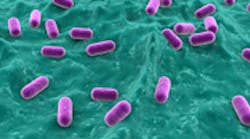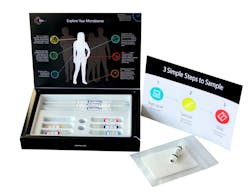Advancing the understanding of the dental microbiome
The human body is populated by at least ten times more bacteria than there are human cells in the body. (1) The Human Microbiome Project (HMP), funded as an initiative of the NIH Roadmap for Biomedical Research, is a multi-component community resource dedicated to understanding this complex microbiome. There are three main goals to the project, but the definitive aim of the HMP is to prove that there are prospects of improving the health of individuals and communities by observing or manipulation of the human microbiome. (1)
While there has always been much study dedicated to disease-causing bacteria, not much attention has been paid to the resident bacteria of the human body and the benefits that some bacteria can convey. The human body, populated by billions and billions of bacteria, is an ecosystem and strives to maintain balance. Our mouths contain over 400 identified species of bacteria, most of which are nonthreatening to the body. (2) Some of the bacteria actually benefit the body, such as those in the gut that aid digestion and produce vitamins used by the host.
READ MORE | Oral-systemic link and the potential impact of probiotics
Probiotics for your mouth?
According to the American Gastroenterological Association, “probiotics are living microscopic organisms, or microorganisms, that scientific research has shown to benefit your health.” (3) Most often they are bacteria, but they may also be other organisms (e.g., yeasts). Often probiotics are the same as the beneficial bacteria already in the human body, predominantly those in your gut. As the mouth is the first part of the gastrointestinal (GI) system, we are now seeing probiotics playing a role in oral health. Companies marketing probiotics to assist in oral health are EvoraPro and Sunstar GUM Periobalance.
The effect of probiotics on dental health, however, is not yet fully understood. One study examined possible mechanisms of probiotic bacteria in the oral cavity and concentrated on probiotic lactobacilli and bifidobacteria, types that are most often used in various probiotic products for use in the oral cavity. (4) The study found that the effect of probiotic strains of bacteria on the oral cavity is still uncertain, so further research is needed. The study found no reason to recommend against using probiotics for their numerous other well-documented benefits—but “their recommendation for dental health purposes is not yet justified.” (4)
uBiome
uBiome of San Francisco has developed a Dental Genome Kit, and is currently raising funds for the kit on Indiegogo. The consumer takes a sample from the gingival sulcus, completes a survey, sends it to a laboratory for processing, and receives an individual microbial profile. The kit is based on knowledge about how the oral microbiome affects dental caries—specifically, that caries results from in imbalance in the oral biome. The creators state that it “is not a diagnostic test and the results should not be used to cure, treat, or diagnose any disease.” uBiome has also created a flyer that can be downloaded, printed, and offered to patients to read and understand the project.
The uBiome is a research study, and an ethical review for the study was conducted. See the FAQ if you have any questions relating to this study or uBiome.
References
1. The NIH HMP Working Group, Peterson J, Garges S, et al. The NIH Human Microbiome Project. Genome Research. 2009;19(12):2317-2323. doi:10.1101/gr.096651.109.
2. The Human Body as an Ecosystem. Unit 5 | Emerging Diseases. The Annenberg Learner. http://www.learner.org/courses/biology/textbook/infect/infect_3.html. Accessed March 26, 2015.
3. Probiotics: What They Are and What They Can Do for You. American Gastroenterological Association. https://www.gastro.org/patient-center/diet-medications/probiotics. Published August 2008. Revised May 2013. Accessed March 26, 2015.
4. Haukioja A. Probiotics and Oral Health. Eur J Dent. 2010;4(3):348-355.
5. Struzycka I. The oral microbiome in dental caries. Pol J Microbiol. 2014;63(2):127-35.
6. Costalonga M, Herzberg MC. The oral microbiome and the immunobiology of periodontal disease and caries. Immunol Lett. 2014;162(2 Pt A):22-38.
Additional Reading
1. Hillman JD. Oral-systemic link and the potential impact of probiotics. Dentistry IQ. http://www.dentistryiq.com/articles/2010/08/oral-systemic-link-and-the-potential-impact-of-probiotics.html.



